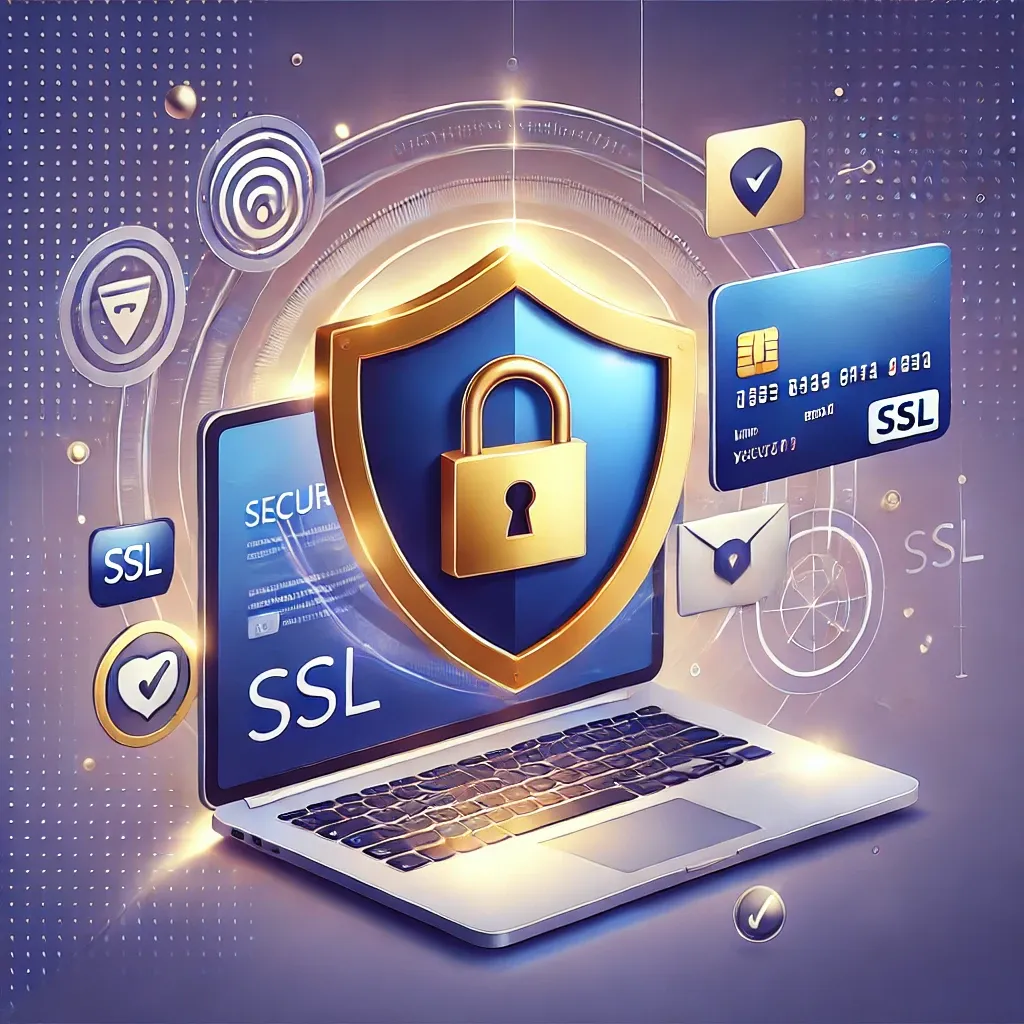"Do I Need an SSL Certificate for My Website? (The Risks of Not Having One!)"
Author
JP Plankinton
Date Published

Introduction: The Security Feature You Can't Afford to Ignore
Imagine you're about to sign up for a free consultation on a website, and right before submitting your email, a warning pops up - "This site is not secure."
Would you still fill out the form? Probably not.
Now flip the script. If your website doesn’t have an SSL certificate, this is what your visitors see. And in 2025, that’s a business killer.
An SSL certificate (Secure Sockets Layer) does more than just add a lock icon or Chrome's new 'tune' icon to your website—it protects your business, your visitors, and your reputation. Without it, you risk:
❗Google pushing your site down in rankings
❗Visitors immediately leaving your site
❗Hackers stealing sensitive data
If you’re a small business or startup, you cannot afford to skip SSL. Here’s why it’s essential…
What is an SSL Certificate?
🔒 SSL = A Digital Protection Shield
I could go into great detail about Certificate Authorities, handshakes, public keys, private keys, encryption, and decryption. But I will save that rabbit hole for another article. The basics is an SSL certificate encrypts the data sent between your visitors and your website. This means that hackers can’t intercept information like login credentials, contact forms, or messages.
Here’s a simple way to think about it:
- No SSL = Sending a handwritten letter through the mail in a clear envelope, where anyone can read it.
- SSL Enabled = Locking that letter in a safety deposit box, and only the intended recipient has the key.
When your site has SSL, the URL changes from http:// to https://, and a lock icon or tune icon appears in the browser bar.
Sounds simple, right? Then why do so many businesses skip it? Because they don’t realize how costly it is to NOT have one.
The Risks of Not Having an SSL Certificate
❌ 1. Google Will Penalize Your Website
Google prioritizes secure websites. If your site doesn’t have SSL, it’s harder to rank on Google—period.
Even worse? Google Chrome marks HTTP websites as “Not Secure”. That means before a visitor even sees your content, they’re already questioning your credibility.
❌ 2. Visitors Won’t Trust Your Website
SSL isn’t just a technical upgrade—it’s a trust signal. 77% of people leave a website if they see a security warning.
Imagine you visit a business’s website to book an appointment, and this message pops up:
🚨 “Your connection is not private. Attackers might be trying to steal your information.”
Are you sticking around? Probably not, I would sure leave.
Without SSL, potential customers will leave your site before they even read about your services or products.
❌ 3. Your Website Is Vulnerable to Hackers
No SSL? That’s an open-door invitation for cybercriminals.
Here’s what hackers can do on a site without SSL:
- Steal login credentials (if users have to sign in).
- Alter form submissions (changing the details users send).
- Inject malicious code (turning your site into a trap for visitors).
And don’t think small businesses are immune. 46% of all digital breaches in 2024 were cyberattacks targeted at small businesses because they often lack strong security measures.
❌ 4. SSL Is Required for Secure Online Transactions
If your website has any kind of form submission (appointment booking, inquiry forms, memberships, newsletter sign-ups), SSL is required to protect that data.
Even simple contact forms can be intercepted if they’re not encrypted. That means your visitors’ personal details—like names, phone numbers, and email addresses—can be exposed.
How an SSL Certificate Helps Your Business
✅ 1. Boosts SEO Rankings (More Visibility, More Traffic)
Google confirmed that SSL is a ranking factor. If you want to rank higher and get more traffic, HTTPS is non-negotiable.
✅ 2. Improves GEO (Generative Engine Optimization) Visibility
With AI-driven search (ChatGPT, Google Bard, voice assistants), secure websites are prioritized over unsecured ones.
If your business relies on AI-driven recommendations, SSL makes sure your site is trusted by these new search engines.
✅ 3. Increases Conversions & Leads
People are more likely to take action on a website that looks safe and professional.
SSL helps:
- Reduce bounce rates (visitors leaving immediately).
- Improve trust and credibility.
- Increase inquiries and sign-ups.
Conclusion: SSL Is a Must for Every Business Website
Here’s the bottom line:
- No SSL = Lower Google rankings, security risks, lost trust, and lost leads.
- SSL = Higher rankings, better security, and more conversions.
If your site still doesn’t have SSL, you’re actively pushing potential customers away.
Want to know more or have questions?
Pick up the phone, shoot me an email, or Smash the orange "Hire JP" Button below and send me a message!
